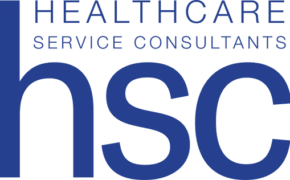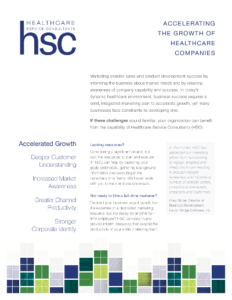
Healthcare IT product marketing plays a significant role in generating brand awareness. It promotes your company’s brand value, products, and the problems they solve. And, it positions thought-provoking, educational content in front of key clinical, technical, and operational stakeholders.
The big question remains. How can you convert this awareness into tangible leads and sales opportunities?
Product marketing plays a pivotal role in identifying and qualifying sales prospects by:
- capturing their interest in specific products or services
- validating their problem-product fit
- initiating their buying journey
In this blog we explore three key areas:
- what’s involved in lead generation
- why it is important for healthcare IT product marketers
- how to capture and convert quality leads
What is lead generation, and how does it differ from general marketing?
General marketing efforts focus on building brand awareness. In short, this is how well people know your company. You want your target audience to think of you first when entering the market for a product you offer or encounter a problem you solve.
Lead generation takes this one step further by identifying prospects across key buyer personas. If prospects become interested in what your company has to offer, the lead generation process progresses a relationship. This process sets them on the buyer journey to becoming a customer.
Digital marketing plays an early role in capturing information about interested parties. Marketing identifies those who are opening and engaging with emails, social media, or website landing pages, etc.
In healthcare IT, purchasing decisions rely heavily on relationships. This is especially true for complex procurements involving multi-disciplinary teams’ significant investments in time and budget. Healthcare organizations need to know they can trust their vendor of choice to:
- solve the problems they’re facing
- deliver the value promised
- provide reliable support well beyond initial implementation
For this reason, there’s a universal need to have a knowledgeable person involved early on in the lead generation process. This go-to person can flesh out the nature of needs in the prospect’s organization. They will describe the solution using the language of the interested healthcare IT persona. This form of qualification is an essential step in effective lead generation as it serves to:
- establish credibility and foster a deeper level of interest
- ensure leads passed along to sales representatives are a good fit
Why is a formal lead generation strategy and process important?
A good lead generation strategy facilitates smooth handoffs of qualified leads to sales. Doing so makes more efficient use of sales’ time. It also better positions them to convert prospects into customers.
For smaller companies with fewer salespeople, it can be difficult to keep on top of leads. In this case, lead generation plays an important role in identifying and focusing sales on the most viable opportunities. Larger companies with big sales forces have greater capacity to follow-up. Lead generation supplements this work by facilitating greater market access and fostering engagement and relationships with prospects.
There are two main approaches to consider when building a well-rounded lead generation strategy.
Hunting. Identification of net-new prospects by generating awareness and interest across target markets and audiences. Qualifying leads, establishing credibility, and building relationships are key components in this approach.
Farming. Cultivates existing customer relationships to encourage sale of complementary products or services. Because trust is already established, this audience is often more receptive and responsive to lead generation efforts. Regular, concise, and informative updates from familiar “inside” sales representatives or customer success managers are effective lead generation tools.
How to generate and qualify leads
Several digital marketing tools and tactics exist in the healthcare product marketing arsenal. Support lead generation with:
Email Engagement Tracking. Tracking who opened, read, and clicked on links within an email is an excellent way to assess interest and identify leads.
Social Media Engagement. Follows, likes, shares, and comments—especially from existing customers—are another form of lead generation. They offer a great opportunity for sales to reach out and connect directly.
Website Landing Pages. Particularly valuable content should be “gated” on your website. This allows you to capture interested parties’ contact information. Integrate this information and email engagement tracking with your CRM to enable automated follow-up emails. Messaging should reinforce key points, suggest other related content, or offer an opportunity to connect with a subject matter expert or sales representative. This is also an important mechanism for scoring leads to prioritize follow-up.
Regardless of the tactics employed, follow-up should occur in a targeted, relevant, and timely manner. Initial lead generation activities should foster a “spark” of interest. Then, hand-off to a knowledgeable salesperson or subject matter expert:
- begins the relationship building process
- answers any questions they might have
- qualifies the problem-product fit
Incorporating lead generation into your healthcare IT marketing program
Are you ready to convert your brand awareness efforts into lead generation? Our team of product marketing experts can help you:
- develop strategies and tools for capturing interested leads
- assist in qualifying prospects
- build an efficient and effective sales hand-off process
- maximize the quantity and quality of sales opportunities for your organization
Contact us to learn more.




